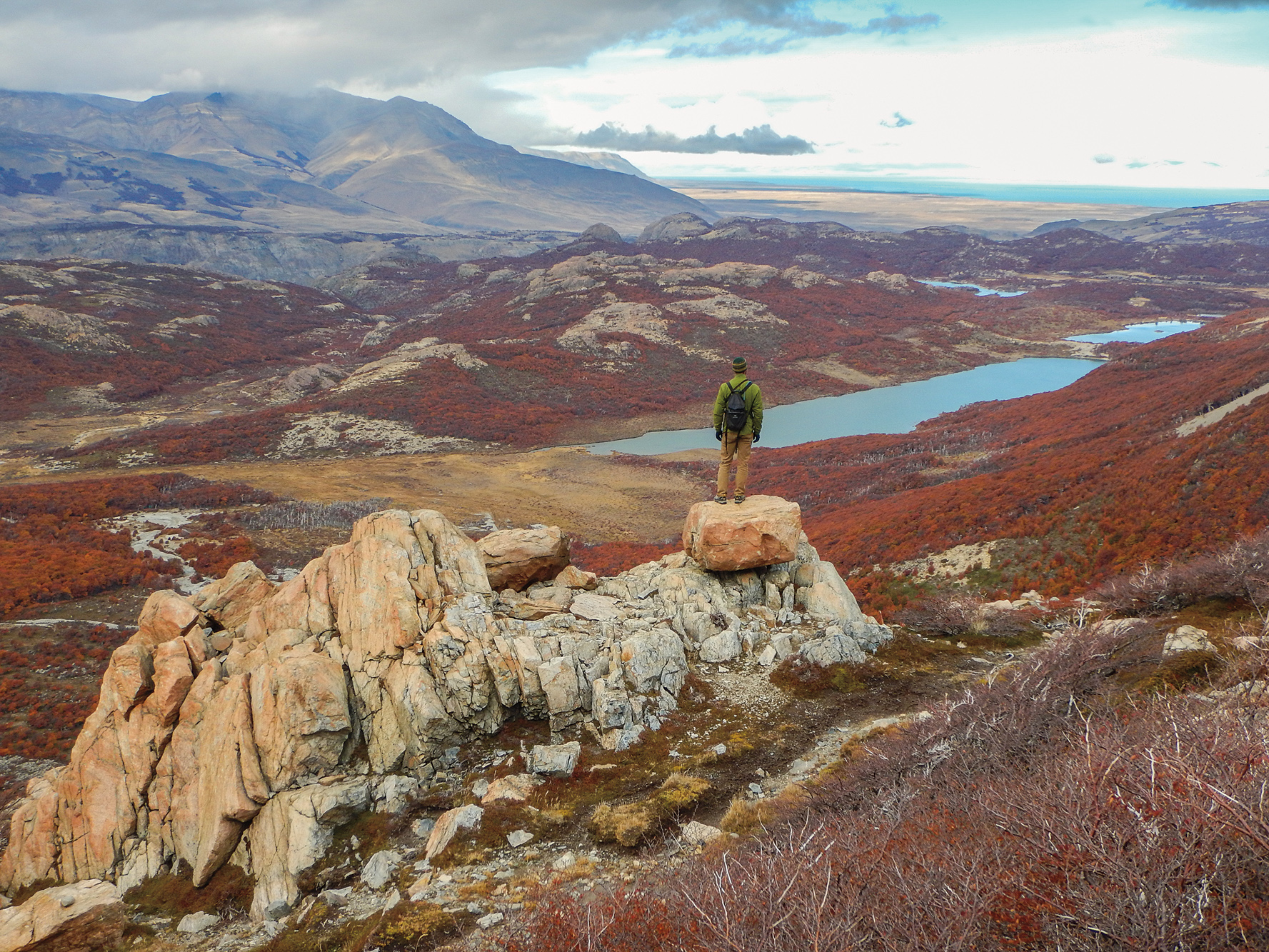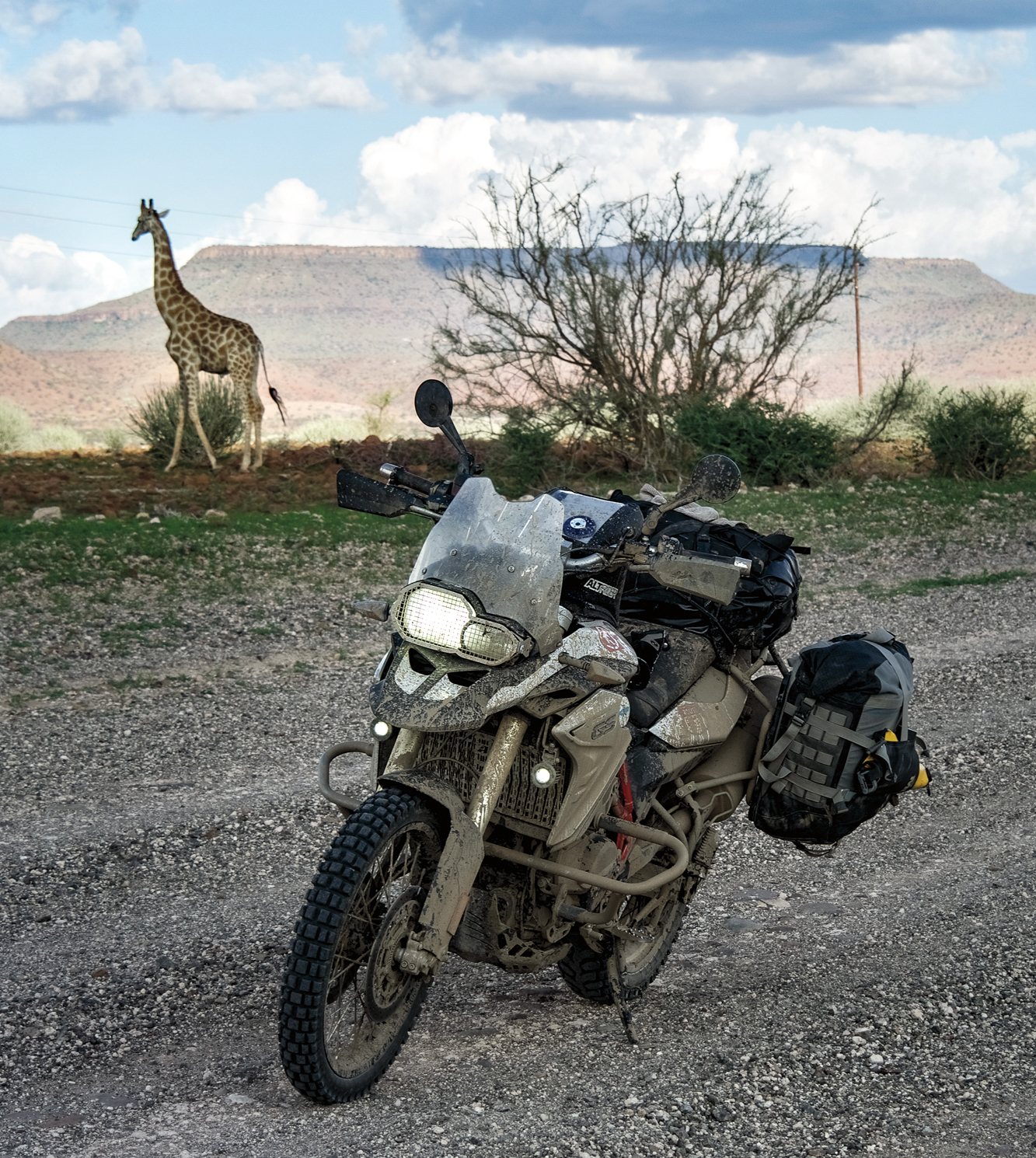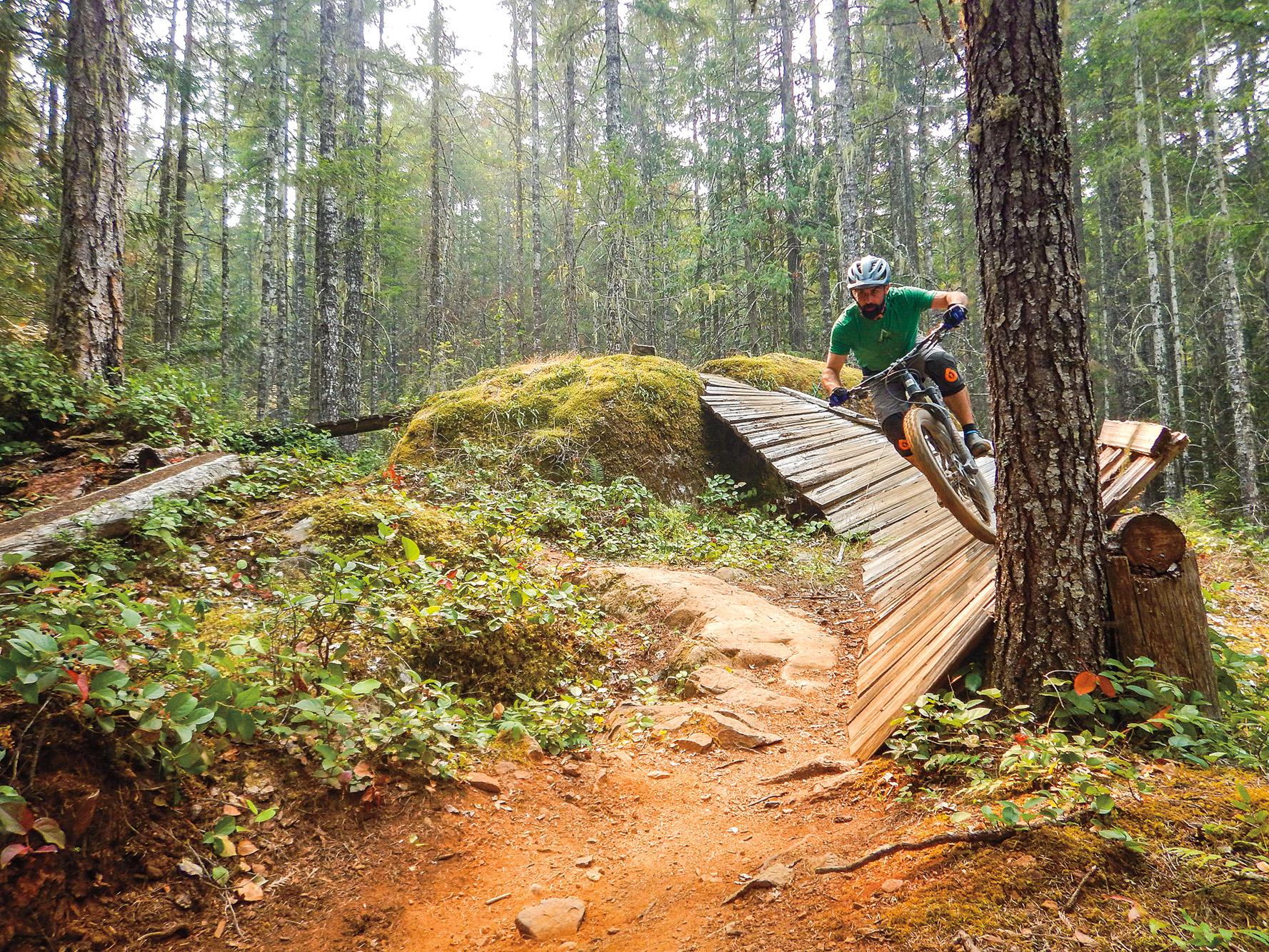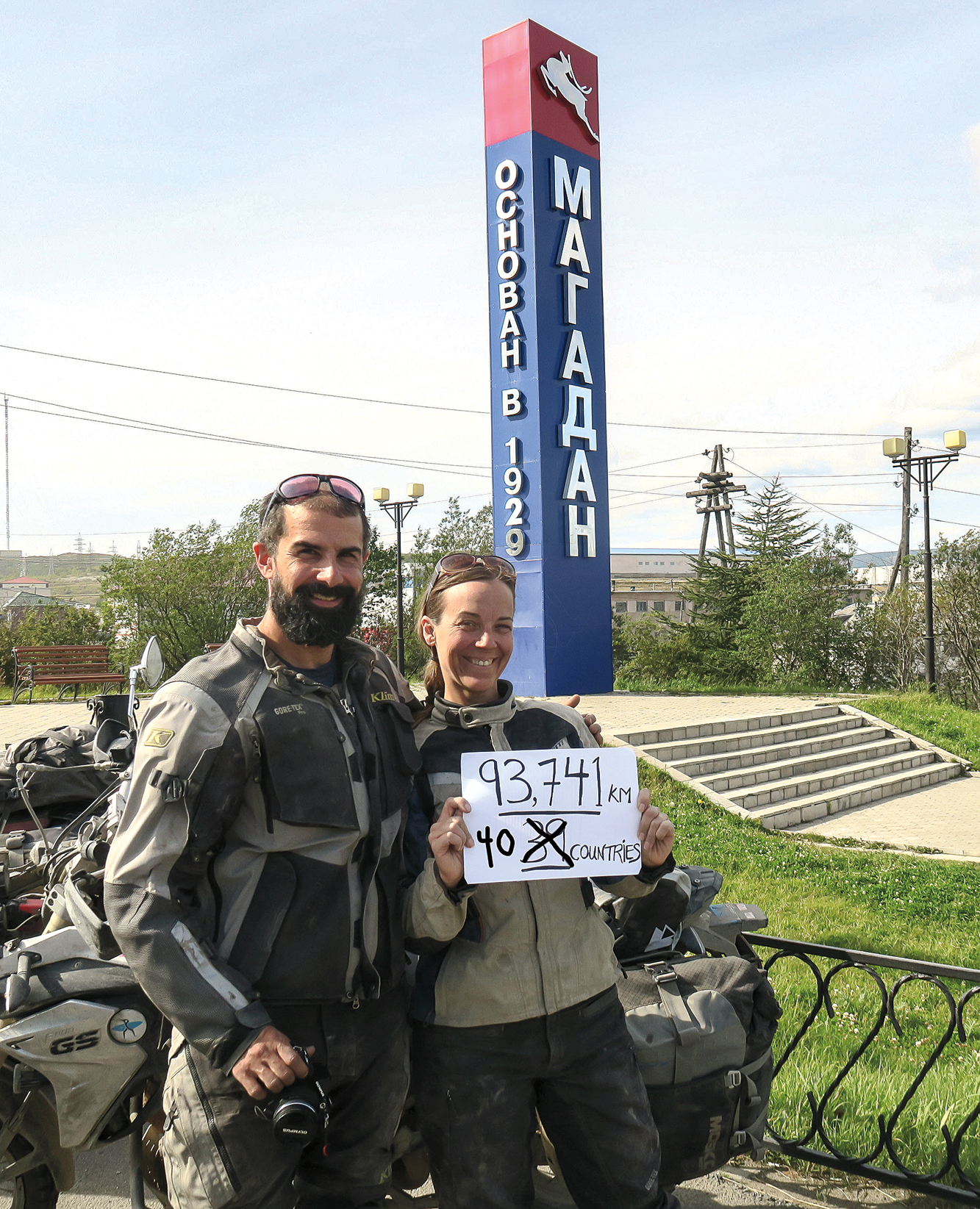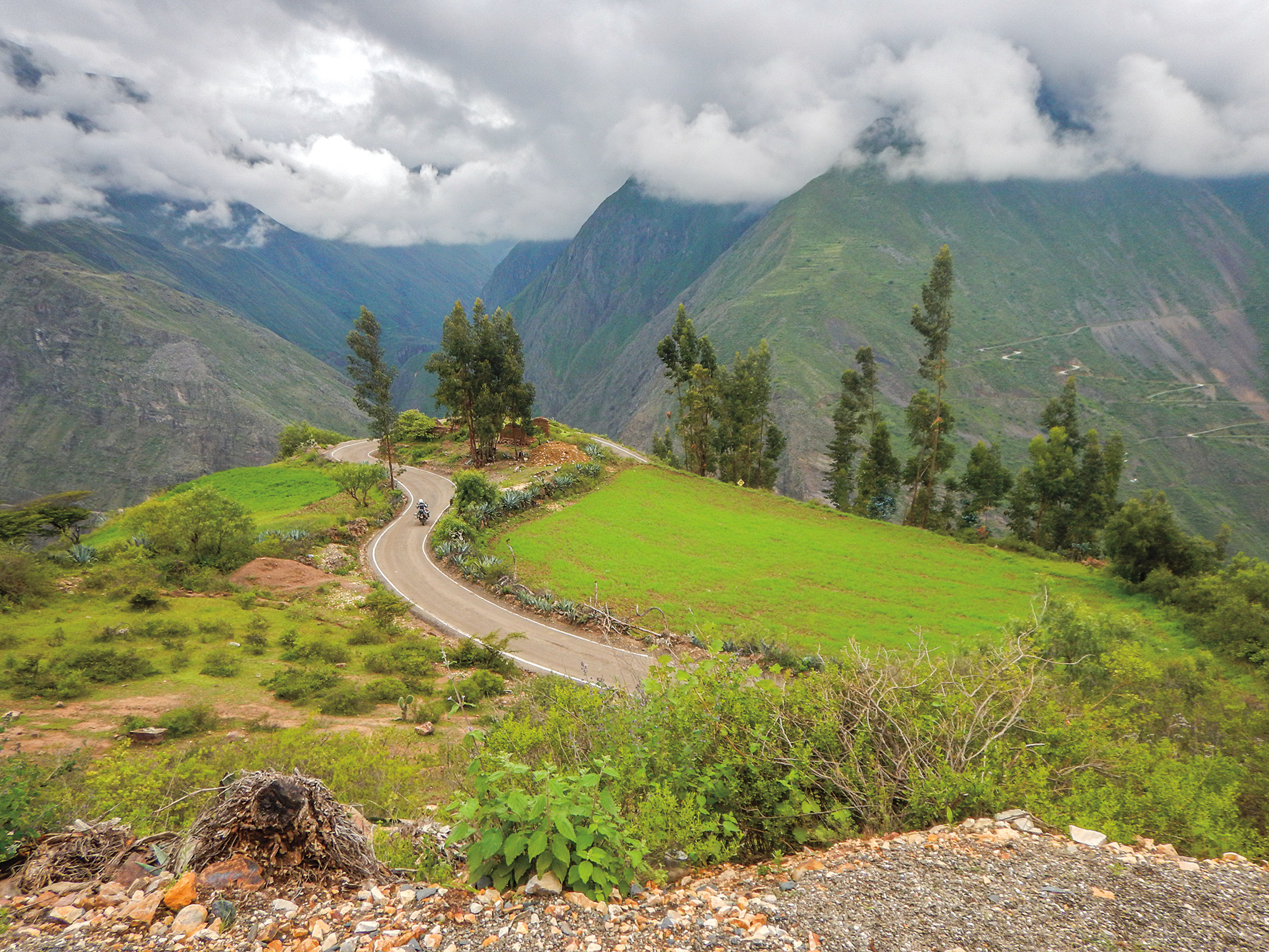It might seem strange, but one of the things Dave and I missed most while traveling around the world on motorcycles were our pillows. Okay, strange.
But the pillows were symbolic of more than just memory foam. If we had our pillows, it meant we would have a bed, which meant we’d have a place. That place would have a fridge with more items than just three starches and chicken (never travel if you don’t like chicken); inside, the drinks would be cold and of a wide selection.
Having a place would mean we’d have a bathroom with a shower, where we could control water temperature to be as hot or cold as desired. We could use a toilet that wasn’t a rank, dark hole in the floorboards under a shack in Mongolia, or a porcelain squat-pit in Africa with a water bucket and toilet brush to slosh down your contents. These thoughts teased me while riding across the Namib Desert or tossing uncomfortably beside Dave in yet another foreign bed that folded us into each other like a soft taco.
We weren’t supposed to want this stuff. Not anymore. We were supposed to be enlightened minimalists. But just because Dave and I rode our bikes through shanty towns in Africa and lived in the same clothes for two years didn’t mean we’d become any less materialistic. We still wanted our stuff. In fact, we wanted it more. The trouble was most of that “stuff ” was gone.
Before we left, Dave and I sold nearly everything we had: Dave’s house, my business, our vehicles, bikes, gear, and anything else we could convince friends and strangers to buy from us—all so we could afford our adventure and not come home to mutating credit card bills.
Although it all made sense at the time to stack up the bank account, we now had little else to come home to other than boxes in storage. This was causing some anxiety as we swallowed up the miles toward our last day of freedom and the first day of Real Life back home.
And where was home now? Dave and I were essentially starting from scratch, albeit debt-free. Before rolling into the first miles of our adventure in the fall of 2015, I was living in Vancouver, Canada, remotely running an arts and culture magazine I’d founded 10 years earlier in Revelstoke. Dave lived in Bellingham, Washington, and ran his own contracting business, specializing in kitchen and bath remodels. We were very happy with our lives before leaving and certainly didn’t see this trip as a way of escaping any issues we had with day-to-day life (except the frustrating commute over an international border to see each other). Which is why we felt we would just merge back into life when we returned, even without a house, jobs, or cars. We could acquire those things again when we came back. It was just stuff.
The decision to do a trip like this came during an ideal time for both Dave and I to segue out of one phase of life into another. We’d been dating long-distance for just over a year when we began the trip’s planning stages. I loved being a writer and business owner, but my modest magazine was a decade into its life and needed the sort of change I wasn’t ready to take on. I was looking for a chance to humbly and respectfully extract myself from something dear to my heart that I no longer had the energy for.
Dave was divorced and living in the same house he’d shared with his then-wife, who’d moved out and left him as the owner. He and his dad had spent significant hours and energy remodeling the home over the years, and Dave’s dad could not see the reasoning in selling a house when he was coming back, eventually. It was a tough call, but one Dave was sure of after deciding he didn’t feel carefree enough to rent it out for two years and not worry about its welfare. Another reason to sell was if we returned together, which we hoped would be the case after spending over 700 days side-by-side, we wanted a place that was ours. Besides, we were going into the unknown—why would we want familiar stresses tying us down?
But how would we feel about these decisions when we came back to North America, wanting to feel grounded? On August 26, 2017, Dave and I reached our final destination in Magadan, Russia, and couldn’t avoid the returning home process any longer.
Dave flew to Seattle from Moscow a few days later and was able to move into his dad’s house in Arlington, Washington. As great as free rent sounds, it did mean Dave had to commute almost two hours a day to work in Bellingham or the Seattle area and would need a vehicle as soon as he landed. Just like that, financing was now plopped onto the après trip table, and a Toyota Tundra appeared on the scene.
I, on the other hand, was in denial and delayed returning to Vancouver by a month, stopping in eastern Canada to see one of my best friends and sister, then on to Radium Hot Springs, British Columbia, to see the new place my parents had moved into while I was away. Although there was a lot of appeal in coming back to the comfort zone and having everything I wanted and needed in a privileged, first-world minute, finding a job and a place wasn’t something I looked forward to.
A friend’s apartment became temporarily available in Vancouver. I paid her rent while she traveled for six weeks. The irony wasn’t lost on me. A week later, I had a job: a low-paying, backwrenching, labor job delivering overloaded bins of organic groceries to homes and businesses. I’d wanted something active and screenless, so all of my free time, minus weekends, could be spent at a computer writing a book about our trip. The delivery job’s perks were working outside with no boss hanging over my shoulder all day, listening to music or podcasts while getting paid to sit in traffic jams. After three months, I’d be eligible for extended health care benefits, too, something I’d never had in my adult life.
However, all of that was like putting lipstick on a pig in comparison to what I’d recently achieved: 708 days through 40 countries covering 58,248 miles. Returning from all that excitement to a job I didn’t really like did little to bolster my spirits during the dreary West Coast winter.
Dave and I were also starting from scratch with our bank accounts, having spent all the money we’d personally and separately saved and invested over the years on motorcycles, motorcycle gear, motorcycle modifications, and a motorcycle trip. It was like being bankrupt. Now back in Vancouver, I was getting paid a dollar per hour over minimum wage, which was hardly going to rebuild my nest egg anytime soon.
But I’d learned not to quit when something didn’t suit me: the result of nearly two years of getting tossed around on a big-ass motorcycle, all while keeping the end goal in sight. And that’s what I continued doing at home. I kept my job because it was the responsible thing to do, and focused on the daily goal of writing my book.
When I had to leave my friend’s Vancouver apartment, I found a high-priced basement suite in Burnaby, a neighboring city far away from the beach and friends and closer to work, which seemed decidedly backward. It’s true that Vancouver’s appeal had diminished a bit for me—the traffic and sheer quantity of people were taxing. My biggest new hate-on though was for public transit. I’d had my own car for over 20 years and couldn’t reconcile having sold my transportation.
I’d also just come from being able to hop on two wheels and go around the world. The fact that I could barely get to a friend’s place for a dinner party without three bus transfers and being wedged like a doorstop between someone with halitosis and someone else with the flu meant I hardly left my basement abode. I couldn’t ride my F800GS because it was stored in Arlington alongside Dave’s bike after a six-week Pacific ocean cruise from Vladivostok back to Seattle. It’s an American bike anyway, and I’d have to import it if I wanted to ride while living in Canada. Having no freedom in the form of wheels left me feeling trapped and hermit-like. There was little in weekday-life that excited me, and I spent Monday to Friday looking forward to Saturday and Sunday, just like most of the working world. I wasn’t comfortable being filed into the weekend warrior category.
Dave took to returning home like a hot, panting dog finding shade. We had both been travel weary by the time we reached Magadan. He loved his job, had projects lined up, and was looking forward to the upcoming ski season. He settled in fine but maintained an aura about him that sought adventure. He would talk to me on the phone at night about future trips we could do together: a multi-month road trip through the ’Stans, ski trips to Patagonia, a summit attempt on Mount Elbrus. He also pined for his old house. Dave wanted to buy back into a market that had gone up considerably after we left. Not only would his old house have sold for more money now, but he also wasn’t finding much affordable in the area.
Meanwhile, my situation was becoming my worst nightmare, at least at first. The last time I remember not liking my job was over two decades ago when I was 19 and moved to Banff, Alberta, to work as a housekeeper. After that, I always got jobs I loved— chef ’s assistant at a heli-skiing lodge (which meant free heliskiing), personal cook for backcountry ski groups, whitewater rafting guide, writer, publisher, business owner. Now, I was just like every other sucker who lived to work so they could afford rent. Commuting to a job on public transit in a city I needed to break up with but couldn’t seemed not only like valuable time wasted, but totally not me. What was happening? Surely this wasn’t all a result of giving up my belongings so I could journey around the world. Or was it?
My life had changed, or at least what I wanted from life had. The city I once loved for its proximity to mountains and colorful chaos was now just a series of confined buildings where zombies lived and worked on auto-pilot. I only saw its negative side. My friends either dropped off never to be seen again or were difficult to visit because I lived far from them and had no car.
I reminded myself that all of this—the expensive basement suite, low-paying job, and crammed public transit—was temporary. I didn’t like it, but I didn’t need to. Falling back in love with my previous city life would make what lay ahead a lot more difficult.
Maybe you’re wondering why Dave and I didn’t come home and move in together. That was the initial plan, after all, and we’d just succeeded at an enormous goal together. We are even engaged after an unforgettable proposal on the summit of Mount Kilimanjaro, which we climbed in April 2017 as a side trip while riding through Africa. Before our trip, we talked about restarting our life together in Bellingham. The plan was to get married, build a house, and enjoy acquiring stuff again.
But it wasn’t that easy. No one can simply move to another country without jumping through hoops. Upon our return, we hired an immigration lawyer and applied for a K-1 visa, which is an unromantic term for a fiancé visa, and are now awaiting approval for my entry into the U.S., which can be anywhere from six months to a year. They don’t give out tracking numbers for this sort of thing.
The wait and process are unnerving at best, but for now, Dave and I contend with weekend visits and long-distance communication, just as though we’ve gone back in time to our first year of dating. It feels odd to be taking a step back in our relationship while working toward our future together at the same time.
Our world travels were stressful and exhausting at times. By the end of it all, Dave and I were stark raving mad to return to some sense of stability after so much time spent negotiating utter randomness. Lucky for us, stability, although askew for us at the moment, was in abundance in North America. Within a few months of returning home, I began to settle into acceptance of my situation. Though transitory, this was still my life for the meantime. I began to appreciate my job more: the perks, the flexibility of its schedule, the regularity of a paycheck every two weeks.
This kind of security was rarely something I craved. Before the trip and for all of my previous life, I ran from anything predictable and unchanging like escaping a swarm of bees. But I was about to learn how adventuring for a consistent length of time had changed me. Stability was nice. My basement suite was comfortable, my landlords upstairs were great, and I had a clean bathroom, a functioning kitchen, and places to store my things, which still consisted mostly of what Dave could bring across the border, or what I had strapped to my bike for the past two years. Everything else we owned was still in boxes and inaccessible behind bed frames and an ugly couch Dave insisted on keeping.
Dave also accepted how our life was unfolding. Although he loathed driving so much for work and coming across the border most Friday nights and back again Monday mornings, our weekends were a chance to adventure together again when we headed to the mountains for a backcountry ski or mountain bike trip. We had a pop-up tent on the Tundra, bikes or skis stowed under the canopy, duty-free Scotch, and our favorite flavors of kettle chips. This was how we envisioned our life would be after coming home. The only thing missing was living in the same country.
Do we regret liquidating possessions that took years to acquire, just for 24 months of travel? In hindsight, Dave would have probably kept his house, but otherwise, no. Experience costs money. We are still young enough to start again. Our financial nest egg is more like a wee embryo now, but can you really place a monetary value on finding a superb restaurant by accident after getting lost in Bogotá, or watching a giraffe keep pace with your motorcycle on a dirt road in Namibia? How about a secluded free camping spot along the Baja coastline on Christmas Eve, or a mountain-top marriage proposal in Tanzania?
Our day-to-day lives today are a far cry from the epic adventure of the past two years, but the more you appreciate returning home, the better that journey outside the comfort zone must have been.
Although Dave and I continue to live somewhat unpredictably, this has little to do with letting go of material things in order to travel and everything to do with where life took us after the trip. Despite a deep urge for some sort of permanency for awhile, we have acquiesced. There’s always comfort in Coming Home, even if home isn’t as you left it or expected it to be. After all, you can make a home anywhere.
But one thing’s for sure: when Dave packs his duffel bag yet again and leaves his dad’s house to come and see me on the weekend, he gets really pissed off if he forgets to bring his pillow.
EDITOR’S NOTE: As of October 2018, Heather was granted her K-1 visa and is now happily living in Washington with Dave.


